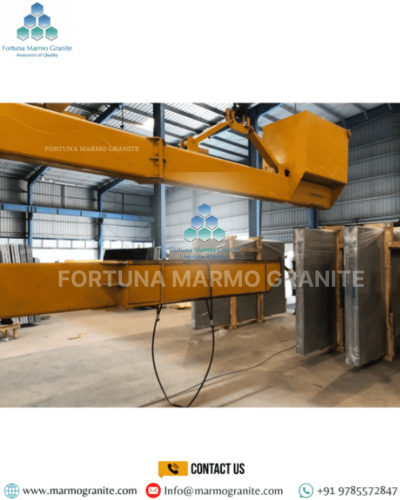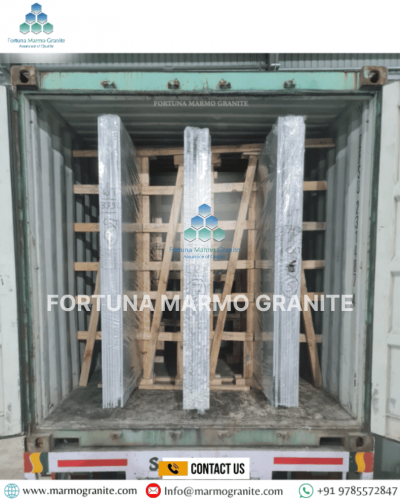Granite Packaging for Export: How Indian Suppliers Ensure Safe Global Delivery
Granite Packaging for Export India plays a leading role in the global granite market. The country is famous for its wide variety of natural stones, from the shimmering Black Galaxy to the warm tones of Tan Brown. These granites are used worldwide, adding both beauty and durability to projects of every scale. Whether for a towering monument or a cozy home, Indian granite remains a trusted choice.
Yet, Exporting heavy and valuable granite is not simple. Moving these stones from quarries to international destinations requires careful planning, smart logistics, and—most importantly—strong, reliable packaging. Without proper protection, even the finest granite can sustain damage during long journeys.
In addition, Over the years, Indian suppliers have perfected safe granite export. At the factory, workers inspect each slab or tile carefully for quality. They then sort the stones by size, thickness, and finish to ensure every piece matches perfectly.
Moreover, Next comes the packing stage, where workers apply the greatest care. Consequently, They place each shipment in strong wooden crates that meet international shipping standards and add protective layers such as foam sheets, plastic wraps, and thermocol to shield the granite from moisture, scratches, and breakage during transport.


The Imperative of Impeccable Packaging: Why It Matters So Much
Granite is strong—but shipping it is not easy. Its heavy weight and brittle edges make it prone to cracks, chips, or scratches if workers handle it carelessly. Even a small mistake in packaging can cause serious damage, resulting in unhappy customers, rejected deliveries, and costly losses. For Indian exporters like Fortuna Marmo Granite, which ship large consignments across continents, safe packaging is absolutely essential.
Suppliers use advanced techniques to protect every slab and tile. They place each stone in a reinforced wooden crate and add layers of foam, edge protectors, and moisture-resistant wraps to guard against bumps, friction, and water. Heavy-duty strapping keeps everything firmly in place, preventing movement during transit.
When granite is shipped, good packaging is not only made to look neat but is also designed to play a critical role in protecting the stone and ensuring it is delivered safely to its destination. Here's what proper granite packaging is intended to achieve:
- Protection from Damage:
Chipping, cracking, or scratching can be caused during loading, unloading, or transport. Strong packaging is used so that impacts are absorbed and the risk of surface damage is reduced. - Shielding from the Environment:
The look and quality of the stone can be affected by moisture, humidity, dust, and even temperature changes. Packaging is applied to block these elements, ensuring the stone's finish is preserved.
The Indian Approach to Granite Packaging: A Multi-Layered Shield
1.Wooden Crates and Pallets: The Foundation of Granite Protection
Indian suppliers like Fortuna Marmo Granite use strong, export-grade, fumigated wood to craft durable crates and pallets. These structures withstand the heavy weight of granite and the rough conditions of international shipping.
- Large Slabs: Moreover, Suppliers place slabs vertically in A-frames and L-frames. These frames save container space and provide excellent stability. Workers wrap the slabs in foam or plastic and secure them with steel or wooden straps. Sometimes, they pack slabs horizontally on heavy-duty wooden pallets with extra shock-absorbing reinforcements.
- Tiles and Smaller Granite Pieces: In addition, Suppliers use robust wooden crates for tiles and smaller pieces. They reinforce the crates to withstand pressure and prevent breakage. Workers carefully pack each tile to avoid scratches or chips.
With this sturdy wooden packaging, every granite piece—large or small—arrives safely. Customers receive granite that keeps its quality and beauty, no matter where it ships.
2. Smart Cushioning and Surface Protection for Granite Shipping
Indian granite exporters use advanced cushioning methods to ensure every slab or tile reaches its destination safely. Beyond sturdy wooden crates, they apply multiple layers of protection to prevent scratches, chips, and cracks during transit.
Step 1: Plastic Wrapping and Foam Layers
Workers wrap each slab in plastic to protect it from moisture and dust. They place foam sheets between slabs to reduce friction and cushion impacts. Rubber bumpers, foam corner guards, or reinforced wooden supports safeguard vulnerable edges and corners.
Step 2: Shrink Wrapping and Strapping
They apply shrink wrap over the packed crates for extra moisture resistance. Heavy-duty steel or plastic strapping secures everything in place. Inside the crates, foam or cardboard sheets further separate the slabs to prevent surface damage from rubbing.
These careful packaging techniques show the exporter's commitment to quality. They ensure the granite arrives in perfect condition—ready to impress, install, and last for years to come.
Quality Control and International Compliance
The commitment to safe global delivery goes beyond packaging. Indian suppliers implement strict quality control measures throughout the entire process, from quarrying to final packing.
Pre-Packaging Inspection: Moreover, Before packing, workers thoroughly inspect every granite piece for defects, cracks, or inconsistencies. Exporters approve only the highest-quality materials.
Adherence to International Standards: In addition, Indian exporters follow global packaging rules, especially ISPM-15 (International Standards for Phytosanitary Measures No. 15). This standard requires all solid wood packaging for international trade to be heat-treated or fumigated and stamped with an approved mark. These steps prevent the spread of pests and diseases and ensure smooth customs clearance worldwide.
Weight Marking and Load Distribution: Yet, Exporters clearly label each crate or bundle with net and gross weight. Proper labeling prevents container overloading and ensures balanced load distribution, which keeps cargo safe and secure during transport.
The Logistics of Granite Export: From Factory to Port
The journey of packed granite from the factory to the destination port involves a well-coordinated logistical chain.
Optimized Container Stuffing: Moreover, Indian suppliers carefully plan container space. For slabs, they position the finished sides facing each other to minimize friction. They also eliminate air gaps between slabs to reduce movement during transport.
Secure Anchoring: In addition, Inside the container, workers firmly anchor wooden crates and bundles using wooden frames, chocks, and strapping. This prevents shifting, toppling, or damage, even during rough sea voyages.
Collaboration with Freight Forwarders: Yet, Reputable Indian granite exporters work closely with experienced freight forwarders who specialize in heavy cargo and natural stone. These logistics partners manage customs clearance, handle documentation, and ensure efficient shipping routes.
Labeling and Documentation: The Unsung Heroes
Every crate or pallet is clearly labeled with essential information, including:
- Material Name: Specific granite type (e.g., Black Galaxy, Kashmir White).
- Dimensions: Exact tile or slab sizes.
- Quantity: Total pieces and area coverage.
- Block/Batch Number: For traceability back to the quarry.
- Surface Finish: Polished, flamed, honed, etc.
- Crate Numbering: Sequential numbering for multi-crate shipments.
- Weight: Net and gross weight per crate.
- Client Reference: Purchase order number or project name.
- Country of Origin: "Made in India."
- Handling Symbols: Standard international symbols like "Fragile," "Keep Dry," "This Side Up."
- Fumigation Stamp (ISPM-15): The crucial IPPC stamp for compliant wooden packaging.
Conclusion
Indian Granite Supplier Granite packaging for export is not just a logistical step—it is a vital safeguard that ensures the product travels smoothly, securely, and without damage from the quarry to the customer. Because granite is dense and often brittle, it can easily chip, crack, or suffer surface abrasion during transport if not handled carefully.
Moreover, Indian suppliers tackle this challenge with sophisticated packaging strategies. They apply multiple layers of protection, including plastic sheets, foam cushioning, edge guards, thermocol lining, moisture-proof covers, and heavy-duty wooden crates that are fumigated and ISPM-certified for international compliance. Workers carefully secure slabs and tiles to prevent unnecessary movement during loading, unloading, or transit—whether by sea or land. In addition, Strapping systems and forklift-friendly crate designs further enhance safety and efficiency. Suppliers also add labels with stone type, dimensions, destination, and handling instructions to ensure smooth customs clearance and organized warehouse handling upon arrival.
Consequently, Granite Packaging for Export, At Fortuna Marmo Granite, We do more than deliver granite—we deliver peace of mind. Our team understands that every shipment represents not only the stone's value but also the supplier's reputation and the buyer's trust. With a strong commitment to excellence and precision, we follow global best practices in packaging. Consequently, Granite Packaging for Export, This approach ensures that every piece of granite—whether for countertops, flooring, or monumental architecture—arrives in perfect condition. As a leading Indian granite exporter, we make sure each shipment is ready to enhance any space it reaches. , Fortuna Marmo Granite combines world-class packaging with dependable shipping logistics, offering clients across the globe a seamless experience from order placement to final delivery, reaffirming our position as a preferred and reliable partner in the natural stone industry.

